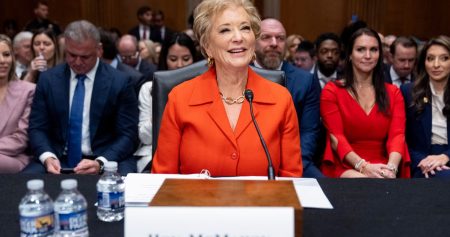The Layoff Crisis and Its Emotional Toll
The recent wave of layoffs under the Trump administration’s cost-cutting initiative, spearheaded by Elon Musk’s Department of Government Efficiency, has left countless federal workers reeling. These individuals, many of whom held unique and specialized roles such as park rangers and sled dog mushers, are facing an uncertain future. Eric Anderson, a biological science technician at Indiana Dunes National Park, encapsulates the emotional impact when he describes how his years of dedicated service were abruptly terminated via email. The unexpected job postings, ranging from nuclear submarine engineers to sled dog mushers, highlight the absurdity of the situation and the struggle these workers now face in finding new employment.
Specialized Skills and the Struggle to Find Employment
The challenge for many of these laid-off workers lies in the specialized nature of their previous roles. Cathy Nguyen, who managed the PEPFAR program at USAID, a initiative credited with saving millions of lives, now finds herself at a career crossroads, unsure where to apply her unique expertise. Mitch Flanigan, a sled dog musher at Denali National Park, exemplifies another struggle, where the joy and uniqueness of his job are now a distant memory as he appeals his termination. These stories illustrate the difficulty in transitioning to the private sector, where such specialized skills often have limited demand.
Political Context and Worker Backlash
The layoffs, criticized as haphazard and ineffective, have drawn sharp responses from affected workers. Luke Tobin, a forestry technician, dismisses the notion of widespread waste, pointing instead to chronic understaffing and budget constraints. This perspective is shared by many who view the cost-cutting measures as misguided and detrimental to essential public services. The frustration is palpable, with workers like Tobin struggling to find even minimum-wage jobs, underscoring the broader issue of undervaluing federal employees’ contributions.
Broader Implications for the Federal Workforce
The layoffs have significant implications for the federal workforce, affecting morale, public trust, and the ability to attract future talent. Workers were drawn to federal roles for stability, benefits, and the chance to make a meaningful impact. The current crisis, however, is eroding these attractions, leaving many questioning their career choices. Gracie Lynne, a Consumer Financial Protection Bureau fellow, embodies this dilemma. Her commitment to public service remains strong, but the practical challenges of job hunting while pregnant highlight the human cost of these policies.
Resilience and Determination in the Face of Adversity
Despite the setbacks, many workers exhibit remarkable resilience. Flanigan continues to fight for his job, while Tobin persists in his job search, applying to various positions. These stories reveal a deep commitment to public service and a determination to contribute meaningfully. Nguyen and Lynne, though forced to reevaluate their careers, remain dedicated to their fields, illustrating a steadfast resolve that transcends personal hardship.
A Call for Change and Future Considerations
The situation calls for systemic change and support for affected workers. Policymakers must recognize the value of federal employees and the importance of their roles. As these workers navigate uncertain futures, it is crucial to address the underlying issues driving these layoffs and to ensure that public service remains a viable and respected career path. The stories of Anderson, Nguyen, Flanigan, Tobin, and Lynne serve as a testament to the dedication of federal workers and a reminder of the need for compassionate and effective leadership in times of crisis.















